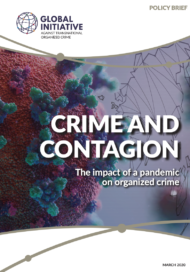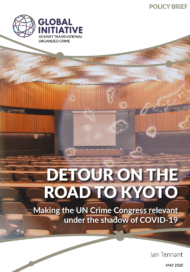The Coronavirus is having a profound effect on the established structures of our globe. International travel has been suspended, borders have been closed, entire countries are in lockdown to prevent further spread, and health systems are being stretched to their limits.
Over the course of 12 weeks, this special edition weekly podcast looks at how the ongoing Coronavirus is impacting organized crime around the world – and how the illicit economy may affect our ability to respond to the virus.
Episode 1 – A Pandemic and Organized Crime
Episode 2 – Dark Pharma and COVID-19
Episode 3 – COVID and Cybercrime
Episode 4 – Human Trafficking and Coronavirus
Episode 5 – Human Smuggling and COVID-19
Episode 6 – Cocaine Trafficking and COVID – Colombia, Central America & Mexico
Episode 7 – Cocaine Trafficking and COVID – South America, West Africa & Europe
Episode 8 – Heroin’s journey during COVID
Episode 9 – Illegal Wildlife Trade: Responsible for COVID?
Episode 10 – COVID and Corruption pt.1
Episode 11 – COVID and Corruption pt.2
Episode 12 – The COVID Roundtable
Bonus Episode – Sarah Chayes on Corruption



